Istanbul Chamber of Industry (ICI) Organized Japan Country Day Event
- 27.05.2021
- News
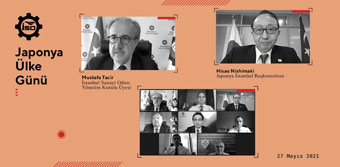
The Istanbul Chamber of Industry (ICI) organized the Japan Country Day & Trade and Investment Opportunities Seminar to discuss economic cooperation and investment opportunities with Japan, one of the world's largest economies. Japan's Consul General in Istanbul, Hisao Nishimaki, attended the event organized as a video conference, hosted by Mustafa Tacir, a member of the ICI Board, on May 27, 2021. Numerous businesspeople and industrialists who wanted to utilize the investment and business opportunities in Japan attended the meeting.
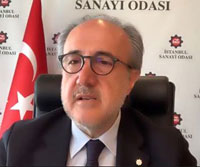
Mustafa Tacir, Member of
the ICI Board of Directors
Speaking at the opening of the event, Mustafa Tacir, a member of the ICI Board of Directors, said that Japan, one of the most developed economies in the world, is one of Türkiye's important trade and investment partners. “Japan is the world's third largest economy after the United States and the People's Republic of China and the 11th most populated country in the world with a population of 125 million” said Tacir. “Japan appeals to a wide geography through the collaborations it has established in addition to its own developed market. The Regional Comprehensive Economic Partnership Agreement (RCEP) signed between the Association of Southeast Asian Countries (ASEAN) and China, Japan, South Korea, Australia, and New Zealand, which are the dialogue partners of the union, is the largest free trade agreement to date with a population of 2.2 billion people and an economic size of $26 trillion. It draws attention as the most comprehensive free trade agreement between China, Japan and South Korea.”
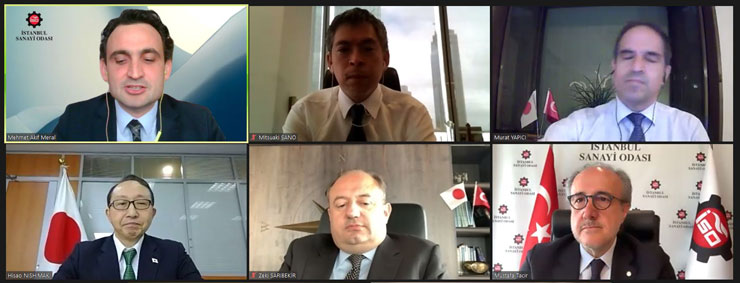
Pointing out that while Türkiye's imports from 15 countries within the scope of this agreement were approximately 40 billion dollars in 2020 and its exports were approximately 7 billion dollars, Tacir said that this amount constitutes approximately 18 percent of Türkiye's total imports and only 4 percent of its total exports. “From the Japanese-Turkish trade perspective, we exported 441 million dollars to Japan in 2020, 3.7 billion dollars of imports. At the point of compensating for the trade deficit, one of the most important goals of industrialists should be to increase their exports and take place in this market by focusing on products that have the potential to increase in Türkiye's exports to Japan and that have a competitive advantage.
“The most important reason for the trade volume to remain below the desired level is the geographical distance between the two countries. The geographical proximity is no longer a negative factor in a globalizing world. We need to improve the means of transportation and communication between the two countries, thus bringing them closer.”
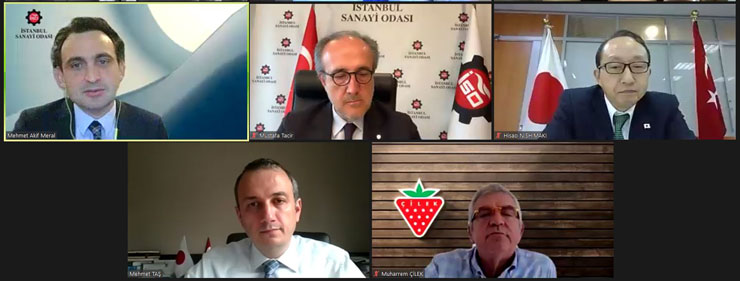
Reminding that trade rules in the world have been re-established through the negotiated large free trade agreements, Tacir reiterated his hope that a quick conclusion of the free trade agreement negotiations between Türkiye and Japan will contribute significantly to the further development of trade relations between the countries, as they emphasized during their Japanese country day in 2016.
Tacir: “In today's tough global competition conditions, the countries that have transformed their industry into a high-tech structure are winning. Japan's success in the economy as a global power is undoubtedly due to placing technology at the center of the industry. In order for Türkiye to gain strength in the competitive race, added value and technology should be the leading role in the industry, and in this context, new technology collaborations between countries should be developed.”
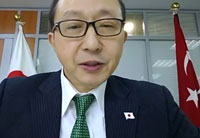
Hisao Nishimaki, the Istanbul
Consul General of Japan
Then Hisao Nishimaki, the Istanbul Consul General of Japan, listed the points that need to be emphasized in terms of trading between the two countries as follows: “First of all, companies that choose Türkiye as their center of operation with a 100-percent Japanese capital or other Japanese partnership transfer technology to Türkiye. Secondly, they empower Turks by providing jobs as well as on-the-job trainings. Thirdly, the intermediate products from Japan for high quality, advanced technology, and durable consumption are assembled in Türkiye. These products, with their higher added value, are exported abroad from Türkiye and this makes a great profit for the Turkish economy. In summary, this indicates that the foreign trade balance is in fact favorable for Türkiye and that Japanese companies operating in Türkiye significantly contribute to Turkish export figures."
Nishimaki said that increasing collaborations between Turkish and Japanese companies have emerged, not only in exports, but also in third countries, and explained that Turkish and Japanese companies in Central Asia, Africa and Middle East countries carry out projects together. “Turkmenistan, Uzbekistan and Iraq are examples of cooperation between companies in this geography. We expect the signing of a Free Trade Agreement between the countries to be quick as well.”
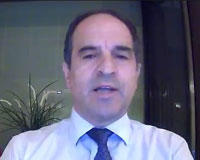
Cooperation and Investment
Opportunities, Murat Yapıcı
Then, in the section titled Japan Trade, Cooperation and Investment Opportunities, Murat Yapıcı, Tokyo Chief Commercial Counselor of the Ministry of Commerce and Mitsuaki Sano, Senior Director of JETRO (Japan External Trade Organization) Istanbul, provided information about the Japanese economy and market. Murat Yapıcı said: “Japan is the fourth largest import market in the world. Türkiye mostly imports fish, pasta and passenger cars and mostly exports automobiles, automotive sub-industry products, accumulators and transformers. Chicken meat, frozen vegetables and fruits, citrus and soda ash could be exported potentially.” He added that FTA efforts that started in 2012 were going very far and that with the signing of the agreement, trade between the two countries would reach a much higher level.
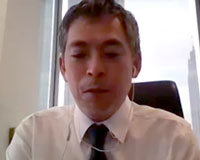
Mitsuaki Sano, Senior Director
of JETRO (Japan External
Trade Organization)
Mitsuaki Sano, Senior Director of JETRO (Japan External Trade Organization) Istanbul also talked at the event and said that there are 10 thousand SMEs older than 100 years and 3,000 SMEs that are 200 years old in Japan, adding that a relationship based on trust is very important in Japanese society. Sano emphasized that tailor-made products are in high demand and that consumers place great importance on quality. Recalling that Japan aims to reduce its carbon emissions to zero by 2050, Sano said that Japan, which has an elderly population, needs health care and smart city technologies.
After the speeches, Mehmet Akif Meral, the Deputy Director of ICI’s EU and International Relations moderated a panel titled “Experiences of Firms Doing Business in Japan”. Zeki Sarıbekir, Vice President of the DEİK Türkiye-Japan Business Council; Muharrem Çilek, Board Member of Çilek Furniture; Mehmet Taş, Responsible Partner at the Aksan Law Office Japan Desk shared their common experiences in the Japanese market with the audience. Questions from the audience were answered by the panelists in the end.